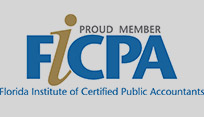Financial senior abuse is a huge problem in the United States. Fortunately, it’s starting to get the attention it deserves. Financial advisors can combat this problem by ensuring their clients are properly cared for as they enter their senior years. Here are 10 things financial advisors should consider as they work with the challenges of dementia in the client-advisor relationship.
1. Power of attorney – As part of your standard client engagement process, you should ask whether your client has executed a power of attorney.
2. Emergency contact – Ask if the client would like to designate an emergency contact whom would be reachable if the firm was concerned about the client’s health or whereabouts.
3. Ask for consent – Ask if you’re allowed to notify that emergency contact if there’s cause for concern regarding the client’s finances or physical/mental condition. Let your client know the specific conditions of this agreement, and assure them they have to right to withdraw consent at any time.
4. Legal documents – Make sure all legal documents are up-to-date regarding any new diagnoses of your client. In addition, make sure all documents reflect the client’s most recent wishes and desires.
5. Plan ahead – The decision to involve children or family members ultimately rests with the client. If the client agrees to this, make sure you receive consent before any issues develop.
6. Welcome family – Ask if the client would like to bring along a friend or family member to various appointments. The client might feel more comfortable having someone with them who can take notes or ask relevant questions.
7. Watch for signs: There are certain questions you can ask friends or family to determine if your client has dementia, such as: Have they been forgetting names of people who are close to them? Have they been forgetting recent experiences? Have they been unable to find important things? Have they been having unpredictable mood swings?
8. Privacy – When reaching out to family members of a client regarding the client’s health and well-being, make sure you don’t divulge any private client data.
9. Documentation – Send letters or notes that document meetings with your client and provide details regarding specific conversations and actions agreed upon in those meetings.
10. Encourage frequent communication – Try to meet more frequently with elderly clients who are seen as more vulnerable investors.






